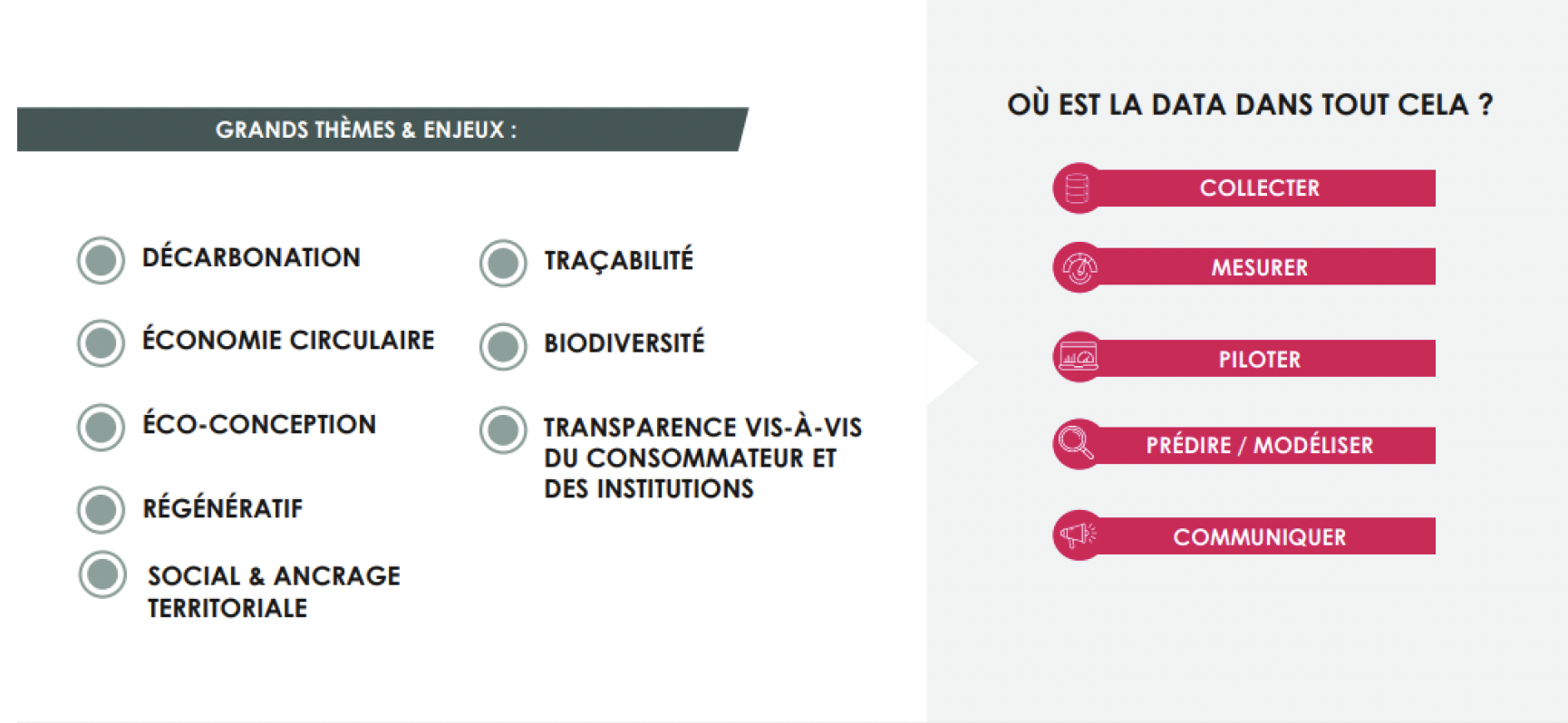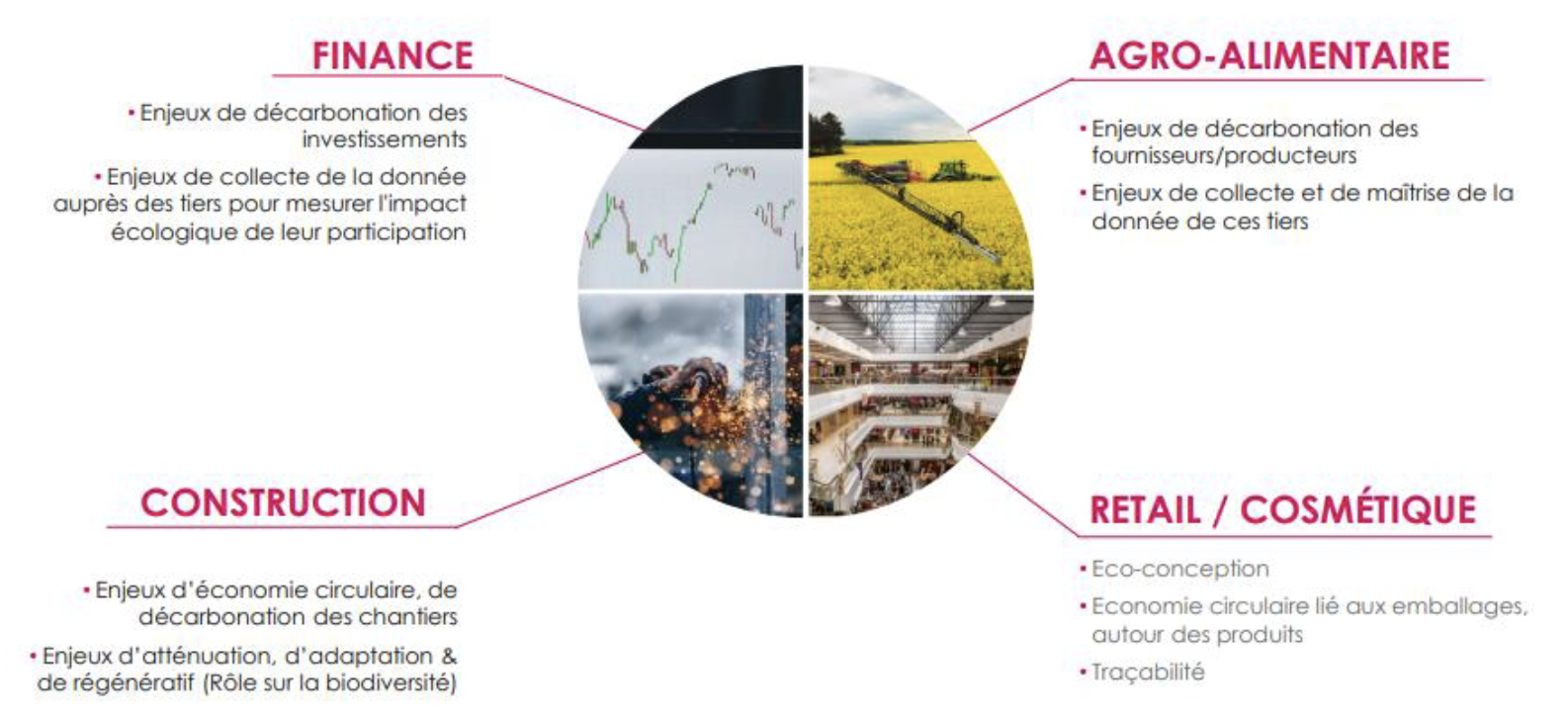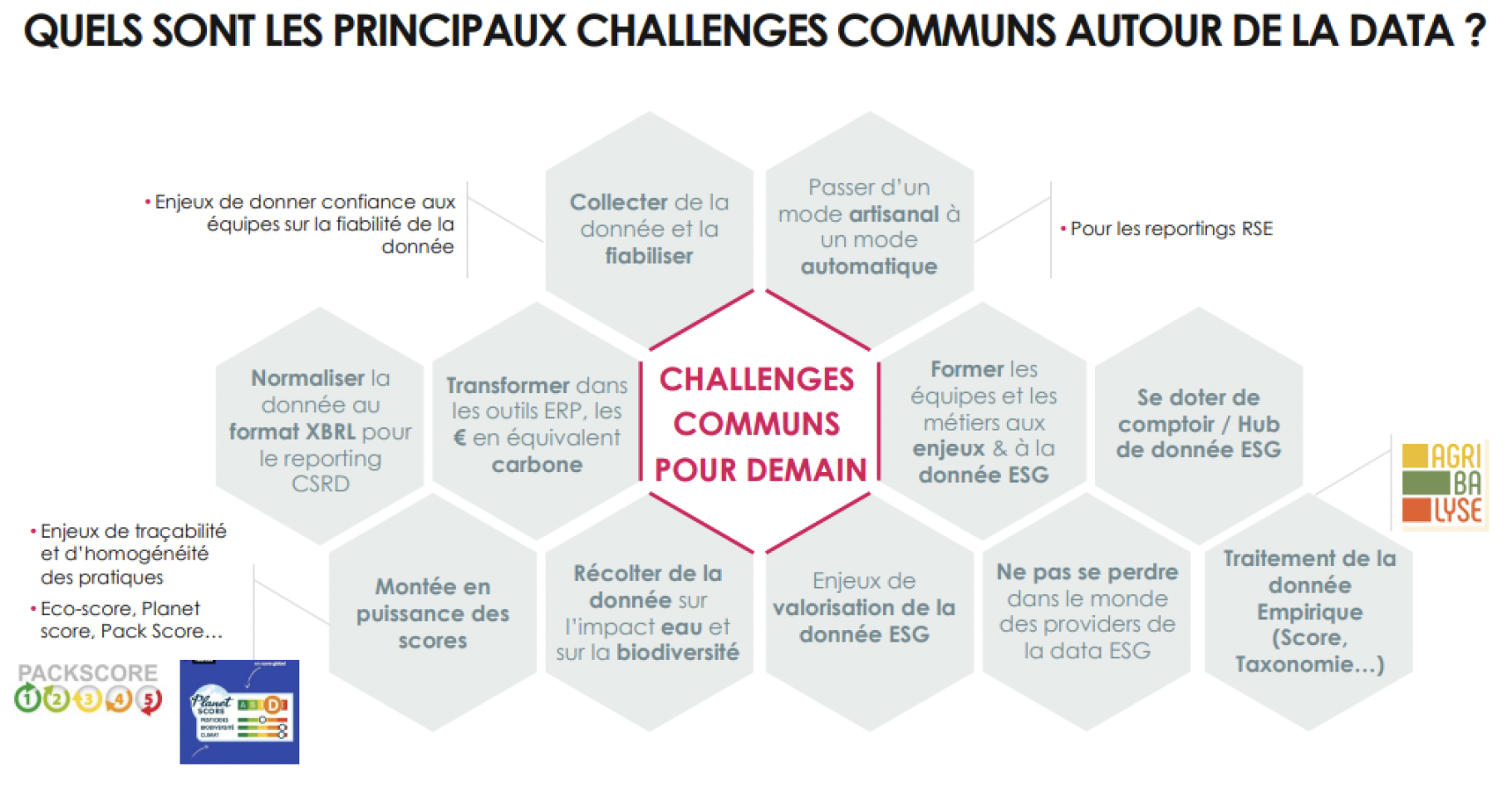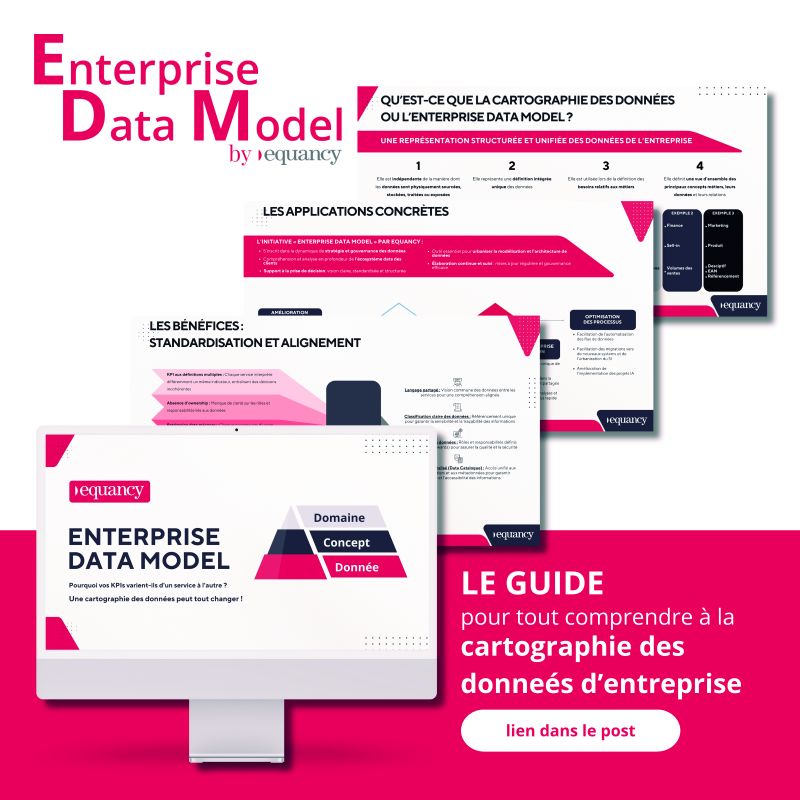When we ask CSR Departments about the major themes they must address, we of course notice strong sectoral specificities, but also many common subjects directly linked to ecological transformation such as decarbonization, the circular economy, eco conception...
Data Management & CSR:
an essential link?
Strong in the conviction that data plays a major role in the success of the ecological transition, we set out to meet around fifteen CSR Directors or Managers to understand the subjects where data has a role to play, what are the current obstacles, the challenges to come?
In this series of articles addressing different themes we will transcribe the results of these interviews: it will notably be about culture, regulations, the tech ecosystem and the jobs of tomorrow. To better understand the links between data and CSR, let's start with an overview of the CSR challenges of the Departments we met.

WHAT ARE THE MAJOR CHALLENGES FOR CSR DEPARTMENTS ?
Some issues are more obvious than others, and many are interlinked.
Decarbonation: the carbon footprint is the indicator used to measure the impact of an activity on the environment, while climate change is the subject we have the best grasp of at present, with calculations of CO2 emissions and abacuses of emission factors that are known and shared with other communities (transport, housing, goods and services, food, public services, etc.)
==> All the CSR managers we interviewed stressed the importance of this major issue for their companies. All the CSR managers we interviewed stressed the importance of this key issue for their companies, with the aim of controlling their carbon footprint and achieving a reduction trajectory in line with regulations.
Traceability: In our interviews, traceability emerged as a major issue requiring the collection of data and the imposition of exchange standards on its stakeholders, and which has a direct impact on other aspects of the ecological transition: regulatory issues, to a greater or lesser extent depending on the industry, sourcing issues, supply chain management issues (which become more complex when you go up the supplier chain beyond tier 1, etc.), consumer transparency issues and performance issues.
As you will have realised, traceability is at the heart of these challenges, and data collection is clearly the key.
Circularity: The life of the product continues once it has been sold to the customer, and it is now strategic for companies to control this second life. Here we come back to the issue of traceability.
One of the solutions adopted by brands is to rethink their business models by integrating a second-hand offer (Decathlon, Petit bateau, Cultura, etc.).
We are also seeing the emergence of usage-based models: car hire with models such as Citiz, or clothing hire with Le Closet, are all the rage.
Eco-design: Here, the objective is to reduce the environmental impact of a product. To eco-design a product, we do not simply confine ourselves to manufacturing but we consider the entire life cycle of the products. This involves mastering product data and making lifespan projections.
Here again, we find the common thread is the issues of traceability and control of supplier data.
Transparency vis-à-vis consumers and institutions:
The acceleration of regulations (CSRD, Green Taxonomy) is forcing companies to be more transparent, and is also forcing them to have quality data to be able to complete their reports.
In addition, the emergence of transparency obligations towards consumers, with more and more scores to be displayed on products (Eco score, Planet score, Pack score, etc.), ties in with traceability issues, requiring companies to produce and use reliable data.
Biodiversity lags behind, but is increasingly present.
Unfortunately, concern for biodiversity is currently on the fringes, but the subject is set to become increasingly pressing, particularly with the ESRS E4 biodiversity standard required by the CSRD, which will require companies to collect new types of data.
Finally, some companies are talking about regenerative ambition, but this very strong systemic approach requires a rethink of the company's 360° vision, which has yet to emerge.
A quick, non-exhaustive look at the specific features of each sector
It's always interesting to note that the issues and priorities are not necessarily the same for all sectors, but data has emerged as a crucial strategic factor for all.


Once we've said that: what are the common findings and challenges around data?
The slide above summarises the key issues that emerged from our interviews.
However, if you had to remember the main point, it would be that CSR departments are still finding it difficult to collect data, that most of the time this collection is still done in the traditional way, with data being shared by email, by attachment, by form, by Excel spreadsheet, and that the major challenge for the future will be to facilitate this collection and make it as automatic as possible.
This is a completely cross-company issue, and each business will have a key role to play in collecting this data.
Beyond the company's internal scope, large companies will have to show solidarity by helping their smaller suppliers to equip themselves with digital tools to facilitate sharing, traceability, etc.
In short, we're in the early stages of a major transformation, and everything still has to be done!
If we look on the bright side, forcing all stakeholders to produce a carbon footprint and follow these new regulations will create virtuous circles, because the scope 1 data of some will be the scope 3* data of others. Data will be created and shared, and it will get easier all the time!
This opens up new areas of technology, architecture and data governance. Make or buy strategy for specialised SaaS solutions, ERP upgrades. One thing is certain, companies will have to equip themselves to deal with the need to control this information.
What do you think? What are the common data & CSR challenges of tomorrow?
Let's discuss on linkedin or by email arousset@equancy.com
Alexis Rousset
Director of Strategy Consulting Data & Impact




